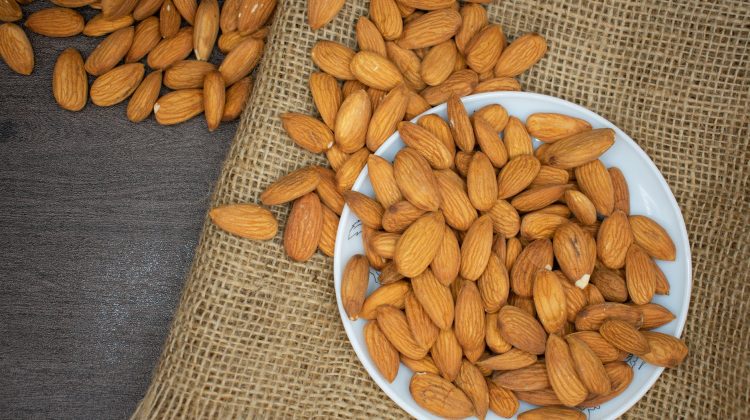
If you’re looking for a delicious way to improve your health, look no further than the walnut. This little powerhouse of a nut is packed with nutrients that can have a big impact on your health.
Walnuts are an excellent source of antioxidants, which can help protect your cells from damage. They’re also a good source of omega-3 fatty acids, which are important for heart health. Plus, walnuts contain fiber, vitamins, and minerals that are all essential for good health.

Walnuts have been a beloved snack for thousands of years. The Roman’s called them by their Latin name, Juglansregia, which means Jupiter after the king of gods. Today, we simply call them walnuts. No matter what you call them, these little nuts pack a big punch when it comes to nutrition.
Walnuts are a type of tree nut that originated in Persia, which is present-day Iran. They spread to other parts of Asia and Europe, before Spanish missionaries brought them to California in the 1700s. Today, they are grown in many parts of the world and are a popular food.
There are many different types of walnuts, but the most common is the English walnut. Walnuts are a good source of healthy fats, protein, and antioxidants.
They have been shown to improve heart health, brain function, and blood sugar control.
English walnuts, also known as Persian walnuts, are members of the Juglandaceae family. Pecans and hickory are close relatives of English walnuts.
Walnut skin sometimes has a slightly bitter flavor, but the nut itself is mild, earthy, and a little tangy. This makes them perfect for using in both sweet and savory dishes.
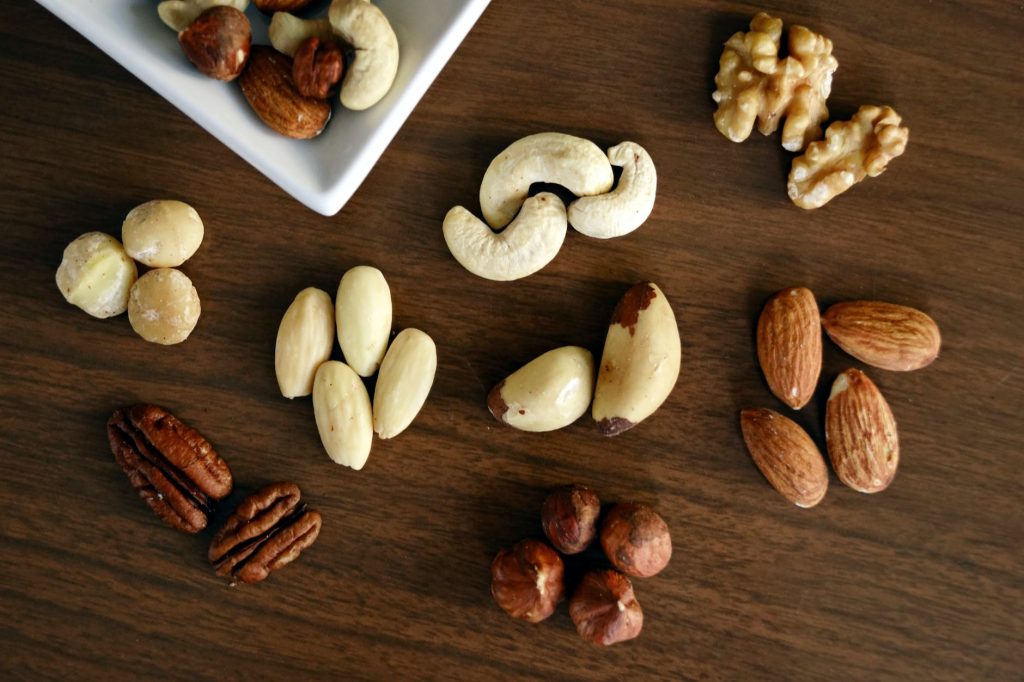
Walnuts are a great source of healthy fats, protein, and fiber. They can be used in so many different ways – from being eaten on their own as a snack, to being used as an ingredient in baking or cooking.
If you’re looking for a tasty and nutritious snack, reach for some walnuts!
What Walnuts Can Do For You
Walnuts are an excellent source of nutrients that are essential for maintaining a healthy body.
Here are some of the benefits that walnuts can provide:
- Walnuts are a good source of protein. They contain all the essential amino acids that your body needs to build and maintain muscle tissue.
- Walnuts are also a good source of healthy fats. These fats can help to lower cholesterol levels and reduce the risk of heart disease.
- In addition, walnuts are rich in antioxidants. These substances can help to protect your cells from damage caused by free radicals.
Walnuts can also ease the impacts of inflammation connected with heart disease, and they may help lower your chances of blood clots that can cause a heart attack.
Two large studies have shown that eating five servings of walnuts a week could reduce your likelihood of heart disease by as much as 50 %.
Nutritional Benefits Of Walnut
Walnuts are one of the most popular nuts in the world and they are known for their nutritional value. Here is a look at the nutritional profile of walnuts.
- Walnuts are a good source of protein, fiber, and healthy fats.
- They also contain vitamins and minerals such as vitamin E, magnesium, and phosphorus.
Studies have shown that eating walnuts may help improve heart health, brain health, and blood sugar control. Walnuts are also a great snack for people who are trying to lose weight or maintain a healthy weight.
One serving of walnuts is 1 ounce, or about 7 walnuts. A serving of walnuts has:
- 185 calories
- 2.5 grams of monounsaturated fat
- 1.7 grams of saturated fat
- 4.3 grams of protein
- 3.9 of carbohydrates
- 1.9 grams of fiber
That small serving size packs a big nutritional benefit. Here are the vitamins and minerals you’ll get in an ounce of walnuts:
- Up to 3% of your daily recommended amount of calcium
- Up to 10% of your daily iron
- Up to 5% of your daily potassium
- Up to 14% of your daily magnesium
- 7% of your daily folate
When to Avoid Walnuts
When to Avoid Walnuts
If you’re allergic to nuts, you’ll want to avoid walnuts. But even if you’re not allergic, there are some situations where it’s best to steer clear of these tasty little morsels. Here are a few times when you should avoid eating walnuts.
- If you’re pregnant, it’s best to avoid eating walnuts. There is some evidence that they can cause miscarriage.
- If you have a history of gastrointestinal issues, you should avoid eating walnuts. They can cause constipation and other digestive problems.
- If you have a nut allergy, obviously you’ll want to avoid walnuts! Eating just a small amount can trigger a severe allergic reaction.

How to Eat and Store Walnuts
Walnuts are a great source of healthy fats, proteins, and vitamins. Here’s how to make sure you’re getting the most out of them:
- Eat them raw or roasted. Raw walnuts are a great addition to salads or as a healthy snack. Roasted walnuts have a deeper flavor that can enhance recipes like soups, stews, and baked goods.
- Store them in the fridge or freezer. Walnuts will last longest when stored in a cool, dry place like the fridge or freezer. This will help keep them from going rancid and preserve their flavor.
- Use them within a few months. Once opened, it’s best to use walnuts within a few months for the best quality. After that, they’ll still be safe to eat but may not taste as fresh.
Walnut Stuffed Prunes
Delicious and Nutty!
These walnut stuffed prunes are the perfect little treat! They are full of flavor and have a nice crunch from the walnuts.
These prunes are so easy to make and only require a few ingredients. You will need: pitted prunes, walnuts, honey, and lemon juice.
To make the filling, simply combine the walnuts, honey, and lemon juice in a food processor and blend until smooth. Then stuff each prune with the filling. That’s it!
These walnut stuffed prunes make a great snack or dessert. They are also perfect for gifting. We also recomend this 9 Low-Calorie Fruits: A Delicious and Nutritious Way to Stay Healthy.
Health benefits of walnut in pregnancy
A pregnant woman’s body goes through a lot of changes to accommodate the growing baby. These changes can be taxing on the mother’s body and mind.
Eating a nutritious diet is one way to help ease some of the symptoms that can come along with pregnancy. Walnuts are a great addition to any diet, but they are especially beneficial for pregnant women.
- Walnuts are packed with nutrients that are essential for both the mother and the developing baby.
- They are a good source of protein, healthy fats, vitamins, and minerals. Including walnuts in your diet can help improve your energy levels, mood, and overall health.
- Eating walnuts during pregnancy has been shown to have a number of health benefits for both the mother and child.
- Walnuts have been linked to lower rates of preterm birth, improved brain development in babies, and reduced risk of certain birth defects.
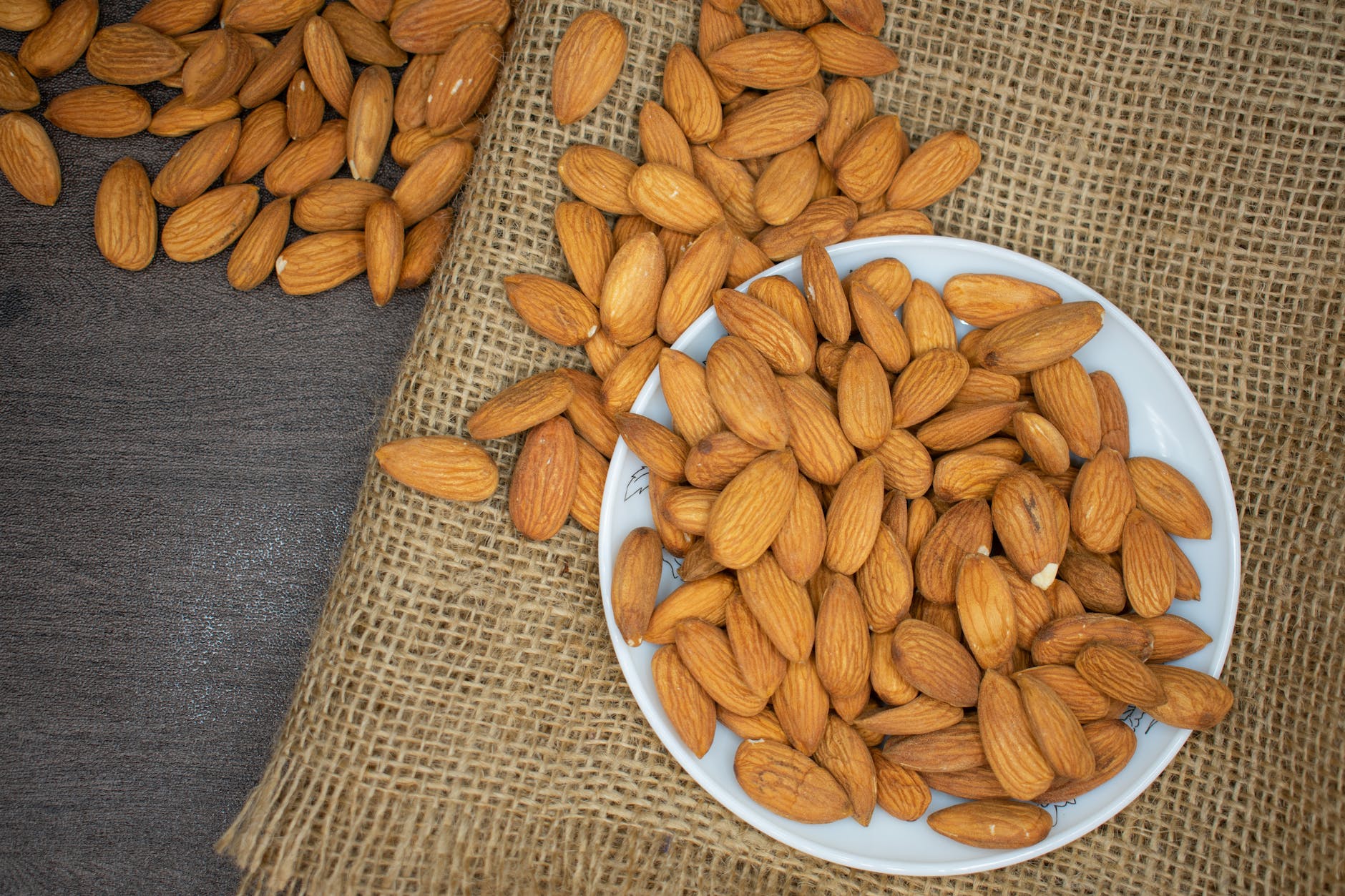
Health benefits walnut prostate cancer
According to a new study, men who eat walnuts may be at a lower risk for prostate cancer.
The study, which was conducted by researchers at the Harvard T.H. Chan School of Public Health, looked at data from over 50,000 men.
The findings showed that men who ate two or more servings of walnuts per week had a 17 percent lower risk of prostate cancer than those who didn’t eat any walnuts.
Walnuts are a good source of omega-3 fatty acids, which have been shown to have anti-inflammatory properties.
Prostate cancer is the most common cancer in men and the second leading cause of death from cancer in men in the United States.
Related: 11 reasons why you should eat chili healthy
Health benefits walnut livestrong
Walnuts are a nutrient-dense food and an excellent source of omega-3 fatty acids. Just a handful of walnuts per day can provide numerous health benefits, including improved heart health, cognitive function and cancer prevention.
Eating walnuts may help to lower cholesterol levels and improve blood vessel function. Walnuts are also a good source of antioxidants, which can protect cells from damage caused by free radicals. These nutrients make walnuts an important part of any healthy diet.
In addition to their many health benefits, walnuts are also a delicious and versatile food. They can be enjoyed as a snack or added to salads, cereals, yogurts or baked goods for extra flavor and nutrition. So go ahead and enjoy a handful of walnuts every day – your body will thank you.
Related: 15 Incredible health benefits of bitter kola /4 Side effects
Health benefits walnut vs almond
When it comes to health benefits, walnuts and almonds are two of the most popular nuts around. But which one is better for you?
- Walnuts are a great source of omega-3 fatty acids, which are known for their heart-healthy benefits. They also contain antioxidants and vitamins that can help boost your immune system.
- Almonds, on the other hand, are a good source of protein and fiber. They also contain magnesium, which is essential for bone health.
So, which nut is better for you? It really depends on your individual needs and preferences. If you’re looking for a heart-healthy nut, then walnuts are a great choice. If you’re looking for a nut that’s high in protein and fiber, then almonds are a better option.

Health benefits walnut vs pecans
When it comes to health benefits, walnuts and pecans are two of the most nutritious nuts you can eat. Here’s a look at the health benefits of these two popular nuts.
- Walnuts are an excellent source of omega-3 fatty acids, which are beneficial for heart health. They’re also high in antioxidants and have been shown to promote brain health.
- Pecans, on the other hand, are a good source of vitamin E and manganese. They also contain ellagic acid, which is a compound that has been shown to have cancer-fighting properties.
So, which nut is better for your health? Both walnuts and pecans offer a variety of health benefits, so it’s really up to you to decide which one you prefer.
Health benefits Walnut oil
- Walnut oil has been shown to offer a plethora of health benefits, including improved heart health, cognitive function and reduced inflammation.
- Cognitive function also seems to be positively affected by walnut oil consumption. In a study on mice, those that were given walnut oil performed better in memory and learning tests than those who were not.
- The oil is rich in omega-3 fatty acids, which are integral for maintaining heart health.
- One study showed that walnut oil was able to lower “bad” LDL cholesterol and raise “good” HDL cholesterol in rats.
- Finally, walnut oil has potent anti-inflammatory properties. This is due to the presence of compounds like ellagitannins and phenolic acids in the oil (3).
These compounds have been shown to inhibit the production of pro-inflammatory cytokines.
Related: Health Benefits of Onion Consumption
Can walnut improve male fertility?
It’s no secret that diet plays a role in fertility, with some foods thought to increase sperm count and motility. Walnuts are one of these foods, due to their high levels of antioxidants and omega-3 fatty acids. Although more research is needed, there is some evidence to suggest that walnuts can improve male fertility.
Walnuts are a rich source of antioxidants, which can protect sperm from damage and improve motility. They’re also a good source of omega-3 fatty acids, which are essential for proper reproductive function.
In one study, men who added 75 grams of walnuts to their diet daily for 12 weeks had significant improvements in sperm quality.
If you’re trying to conceive, adding walnuts to your diet may help boost your fertility.walnut
The above study was not the only one to find that walnuts can lower blood pressure. In a 2019 study, published in Journal of the American Heart Association, researchers found that when study subjects ate whole walnuts, they experienced greater benefits than when they consumed a diet with a similar fatty acid profile without walnuts. Outcomes included a reduction in central diastolic blood pressure (the pressure that moves towards the heart), and positive changes to cholesterol profiles. Scientists say the study is an example of how a relatively small eating change can result in significant cardiovascular benefits.
They Can Benefit Brain Health
Eating walnuts may help slow cognitive decline in at-risk groups of older adults, according to a 2020 study published in The American Journal of Clinical Nutrition. Researchers randomly assigned over 600 elder adults to either a diet with 15% of calories from walnuts or a control diet without walnuts.
While the walnuts had no effect on the cognitive function of healthy subjects, brain MRIs showed that the nuts had a greater effect on higher-risk people, including heavier smokers, and those with lower baseline neuropsychological test scores.

Frequently Asked Questions
What happens if I eat walnuts everyday?
If you’re like me, you love walnuts. They’re a great source of healthy fats and protein, and they taste good too. But what happens if you eat them every day?
It turns out that eating walnuts every day is actually pretty good for you! Studies have shown that walnuts can help improve your cholesterol levels, lower your risk of heart disease, and even improve your cognitive function.
Is walnut good for ladies?
If you’re a woman, you may have heard that walnuts are good for you. But what happens if you eat them every day?
Walnuts are a good source of omega-3 fatty acids, which are important for heart health. They also contain antioxidants, which can help protect your cells from damage.
Eating a handful of walnuts each day can help you get the nutrients you need to keep your heart healthy and your cells protected.
What is the best time to eat walnuts?
If you’re like most people, you probably think of walnuts as a tasty snack. But what you may not know is that walnuts are also packed with nutrients that can have a positive impact on your health.
What is the side effect of walnut?
So, if you’re wondering what the best time to eat walnuts is, the answer is anytime!
Walnuts are a good source of protein, fiber, and healthy fats. They also contain important vitamins and minerals like magnesium, copper, and manganese.
If you’re like most people, you probably think of walnuts as a healthy snack. But what you may not know is that eating too many walnuts can have some unexpected side effects.
For example, did you know that walnuts can interfere with sleep? That’s because they contain melatonin, which is a hormone that helps regulate our sleep-wake cycle. So if you eat a lot of walnuts before bed, you may find it harder to fall asleep.
Some experts say that eating too many walnuts can lead to weight gain and other health problems. So, what’s the downside of eating walnuts? Let’s take a closer look.
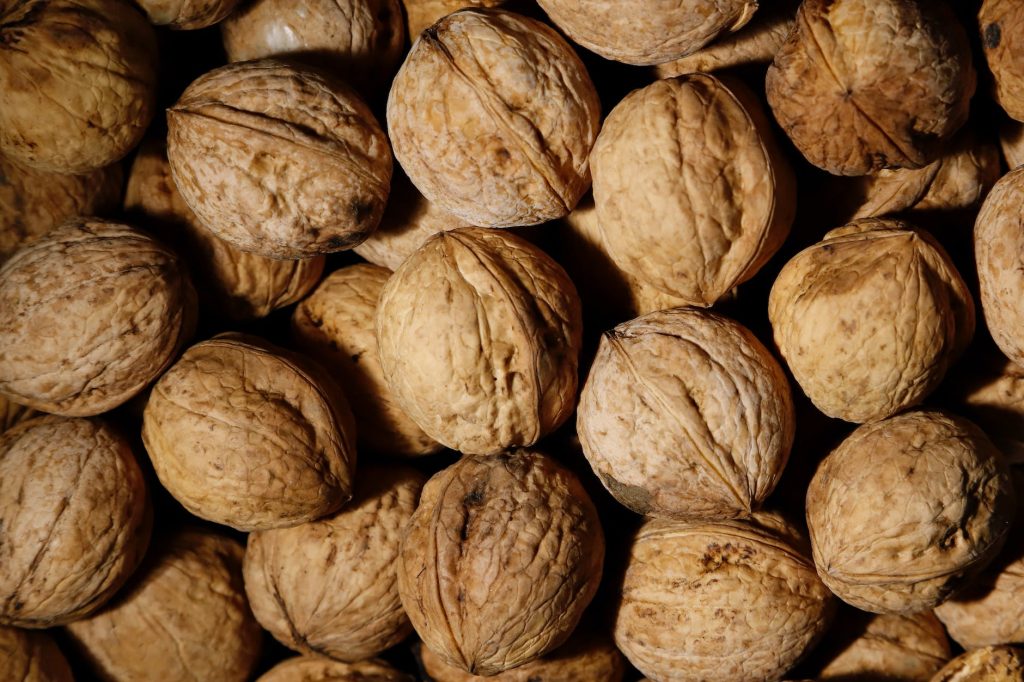
How to eat walnut
Eating walnuts is a healthy and delicious way to enjoy this nutritious nut. Here are some tips on how to eat walnuts:
- Eat them whole: Walnuts can be enjoyed whole, with or without the shell. Simply crack open the shell and pop the nut into your mouth.
- Add them to your favorite dish: Walnuts make a great addition to salads, pasta dishes, stir-fries, and more. Just chop them up and add them to your favorite recipe.
- Enjoy them as a snack: Walnuts make a great snack on their own or paired with other foods like fruits and cheeses.
Benefits of walnuts for skin
Walnuts are not only a delicious snack, but they offer many benefits for your skin as well. Walnuts are a good source of omega-3 fatty acids, which are beneficial for maintaining healthy skin. Omega-3 fatty acids help keep your skin moist and supple and can also help to reduce inflammation. Walnuts also contain antioxidants, which can help to protect your skin from damage caused by free radicals.
Eating walnuts may help to improve the appearance of your skin. One study found that women who ate a diet rich in nuts had significantly less dryness and wrinkling than those who did not eat nuts. The antioxidants in walnuts may also help to fight against the signs of aging, such as wrinkles and fine lines.
In addition to eating them, you can also use walnuts topically on your skin.
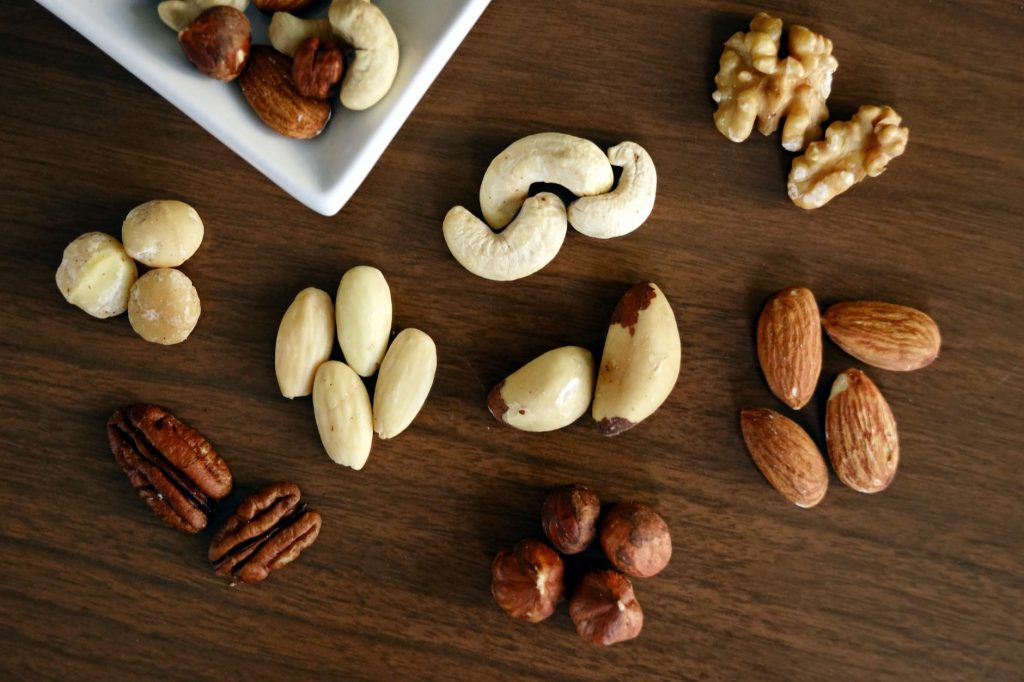
Walnut benefits for hair
If you’re looking for a new way to improve your hair health, look no further than the humble walnut.Walnuts are packed with nutrients that can benefit your hair in a number of ways. Here are just a few of the ways that walnuts can help your hair look its best:
Walnuts are rich in omega-3 fatty acids, which are essential for maintaining healthy hair. Omega-3 fatty acids help keep your hair follicles moist and prevent them from becoming dry and brittle.
Walnuts also contain high levels of biotin, a water-soluble vitamin that is essential for healthy hair growth. Biotin helps your body produce keratin, the protein that makes up your hair shafts.
In addition to omega-3 fatty acids and biotin, walnuts also contain copper.
Conclusion
In conclusion,the health benefits of walnut are many and varied. From reducing the risk of heart disease to improving cognitive function, there are plenty of reasons to add this super food to your diet. So what are you waiting for? Add a handful of walnuts to your next meal and enjoy the benefits.

Leave a Reply
You must be logged in to post a comment.